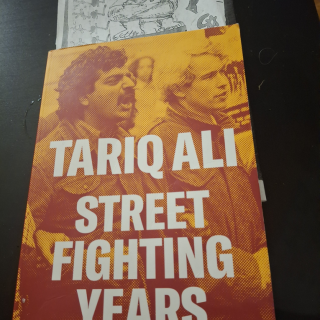As a Kansas farm girl named Dorothy said long ago, there’s no place like home. Whether that’s a good thing or a bad thing is one of the questions addressed in The Farewell.
Like last year’s Crazy Rich Asians, the new film shows what happens when Westernized Asians return to their cultural homeland. Coincidentally, the flick again features Awkwafina, though this time the rapper-turned-actor is the star rather than the comic relief.
When we first meet her character, a Chinese-born American named Billi, she’s talking over the phone with her beloved grandmother, Nai Nai (Shuzhen Zhao). We quickly realize that neither woman is being quite truthful with the other. Billi insists she’s doing fine, though she actually owes back rent on her New York apartment, and Nai Nai hides the fact that she’s in a Chinese hospital being tested for persistent health problems.
This conversation sets the stage for the movie’s central theme: the importance of telling – or withholding – the truth. It’s not until Billi visits her parents that she learns Nai Nai has lung cancer and has been given only months to live. Furthermore, she learns that Nai Nai hasn’t been told. Following the Chinese custom, her relatives have decided she’s better off not knowing.
In yet another surprise, Billi’s parents announce that they’re planning to attend a cousin’s wedding in their Chinese hometown, though their real reason is to surreptitiously say goodbye to Nai Nai. But when Billi begs to come along, they order her to stay away because she wouldn’t be able to contain her grief and would doubtless give away the secret.
So when Billi surprises her family by making the trip anyway, she puts everyone but Nai Nai on edge. Will she follow the Chinese custom, or, like the naturalized American she is, will she insist that her grandmother deserves to know the truth?
Written and directed by Lulu Wang – and reportedly “based on an actual lie” – The Farewell doesn’t take sides in the cultural divide between East and West. Instead, it merely tries to explain it. One of Billi’s relatives points to a difference between the two cultures that was also mentioned in Crazy Rich Asians: Americans put a high value on individuality, while the Chinese stress responsibility to family and society.
How does this relate to the decision to keep Nai Nai in the dark about her condition? The relatives believe that by doing so, they’ve taken the worry she would have felt and shouldered it themselves. And worry, they reason, is an even greater danger to Nai Nai’s health than the disease itself.
Though the plot has obvious melodramatic elements, the film actually produces more chuckles than tears. That’s partly by design and partly because Awkwafina, though a relatable presence, is more adept at tickling our funny bone than at grabbing our emotions.
Of the other actors, Zhao makes the biggest impression as the loving, indomitable Nai Nai. Also noteworthy are Diana Lin as Billi’s tightly controlled mother and Tzi Ma as her father, who seems to be suffering from health problems that are never explained. The rest of the cast plays more limited roles. For instance, Han Chen and Aoi Mizuhara mostly express silent discomfort as the groom and his Japanese bride, who know their upcoming nuptials are not the real reason the family has gathered.
Speaking of which, the wedding day eventually arrives and is filled with details that will be both familiar and unfamiliar to American viewers. There are toasts and speeches, but there are also karaoke and operatic performances. But perhaps most exotic of all is the fact that nearly everyone present is putting up a front for the sake of an ailing family member.
As I watched this warm comedy-drama, my Western mind couldn’t help wondering one thing: If lying about health matters is so pervasive in China, wouldn’t Nai Nai or anyone in her situation quickly suspect what’s going on? It’s a question that is never addressed.
Another question, however, is answered at the beginning of the closing credits. I won’t give away the reveal except to say that it may affect your feelings about all that has transpired.



